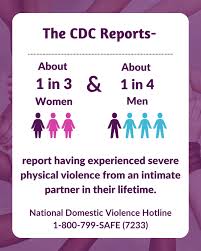Intimate partner violence is recognized by the Centers for Disease Control as a public health threat, effecting one in three women and one in four men. CCRC’s Research Division collaborated with the California Department of Social Services, the California Partnership to End Domestic Violence (CPEDV), and Parent Voices to better understand barriers to support and resources for survivors.
Listening sessions involved those who administer and provide programs and services for survivors of domestic violence, child care providers, and parent survivors of domestic violence from across the state. “The survivors are a very vulnerable population,” said CCRC Research Director Susan Savage. “We partnered with CPEDV because they already have a relationship with these individuals. Those partners led the sessions with survivors and we had parent advocates there to support them if they became triggered or needed resources. Listening session staff were trained on domestic violence and healing informed practice.”
During these listening sessions, the researchers learned of several barriers to support and services:
- A lack of awareness about services and resources.
- An actual lack of services. Savage said one key service needed to flee abuse is a place to live, but housing – both temporary short term or long term – is limited in terms of both funding and physical structures. “The same applies to mental health services, especially in smaller rural communities,” said Savage.
- Documentation burden. About 25-33% had a disability (cognitive, physical, or emotional) which made the already complex documentation more difficult to understand. The listening sessions revealed that some county workers did not understand which documentation was actually required.
- A lack of empathy and compassion from line staff.
- A lack of cultural competency among staff. It’s required that services and documents be offered in multiple languages, but some counties do not provide this. “Some staff told survivors that if they have a domestic violence status that it could compromise their application for citizenship, which is not exactly true,” said Savage. “In fact, there are specific programs for immigrants and refugees.”
Blue Shield of California Foundation publishes podcasts and one said that while policies can be phenomenal, there may as well not be a policy if it’s not properly implemented. Following the findings of the research, some changes are being put into place. This includes a unit within CDSS to ensure programs and services are reviewed and aligned and understood in terms of what barriers are and how to proceed to remove barriers. The unit will work across other units and branches in DSS so that it’s not siloed in CalWORKS. They’ve also released documents to clarify existing policies to help workers understand what they’re required to do.

Savage said the next step is a partnership explored between CDSS and Blue Shield to strengthen training for counties. The enhanced training would include not just policies, what’s required, and available, but how to identify survivors. “They survive by being hidden, unseen, and quiet,” said Savage. “The onus is on us to identify them, it shouldn’t be on them to self-identify.” Savage added that employees will be trained to better understand that a survivor should be believed every time they disclose abuse and that each person may have a difference experience with domestic violence and the system, which can be better understood through an equity lens. Blue Shield of California Foundation is looking into funding pilots in different counties that would help navigators better inform survivors on what’s available and how to apply.
“The fact that we were called upon to head this research recognizes that CCRC is a lead agency in developing partnerships to leverage strengths, service delivery, research and government relations, as well as building statewide partnerships,” said Savage. “That’s what we accomplished: strengths in our partnership. We leverage their trusted relationships in the community, then move on to understanding how to design a project that uplifts community voice and empowers it to make systemic change. CCRC’s skillset is strategically putting into place the partnerships to uplift all unique strengths to create change.”
You can watch a video of the research on our YouTube channel. If you or someone you know is experiencing domestic violence, click here for access to immediate help.



